

Don’t forget, a person’s greatest emotional need is to feel appreciated. #US has only 4 tools in its 'diplomacy' kit: threats, blackmail, sanctions and regime change Now 🇺🇲 warmongers wants to punish #SouthAfrica for their ties with #Russia https://archive.is/c8EXQ


 jää tunnistamatta, koska heti vihjailun jälkeisessä
kappaleessa suorastaan kerrotaan, että Viro oli Neuvostoliiton kehittyneimpiä
maita. V
jää tunnistamatta, koska heti vihjailun jälkeisessä
kappaleessa suorastaan kerrotaan, että Viro oli Neuvostoliiton kehittyneimpiä
maita. V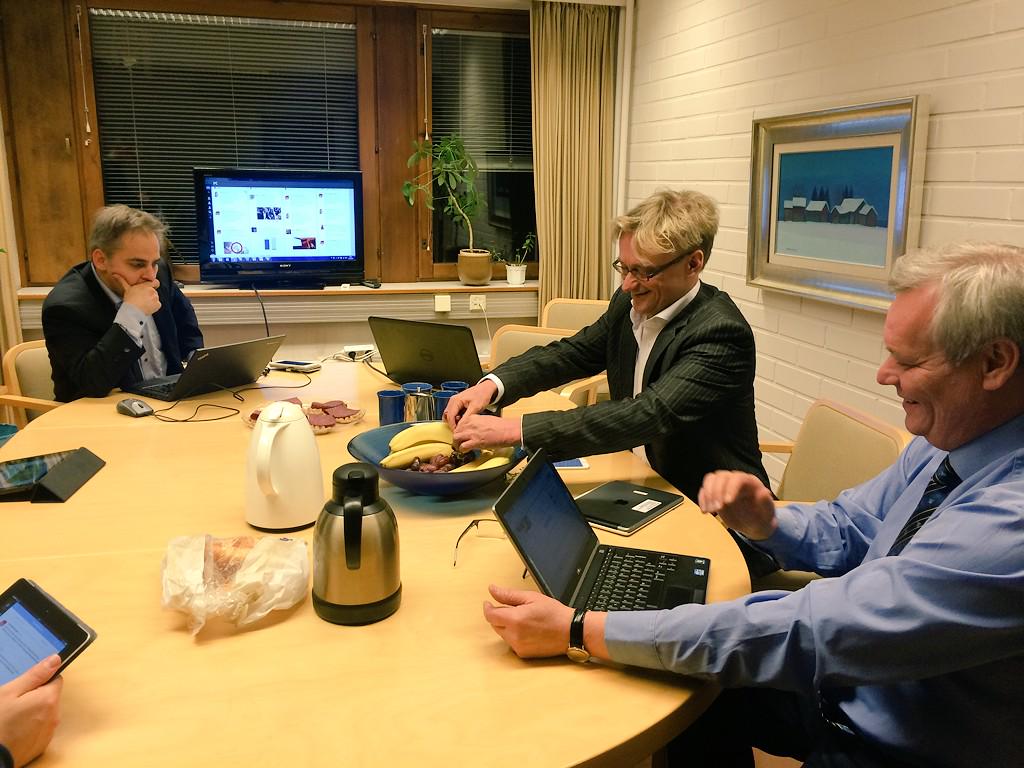 weel saw it too but hope t wount appenndeed, that was the moment that Varoufakis demonstrated that he is more of an intellectual than a political drone. He appeared to enjoy trying to transform defeat into victory using only the sheer power.....politica of words.niin tai no tulokset näkyyhttp://www.veteranstoday.com/2015/02/28/who-killed-boris-nemtsov/
weel saw it too but hope t wount appenndeed, that was the moment that Varoufakis demonstrated that he is more of an intellectual than a political drone. He appeared to enjoy trying to transform defeat into victory using only the sheer power.....politica of words.niin tai no tulokset näkyyhttp://www.veteranstoday.com/2015/02/28/who-killed-boris-nemtsov/
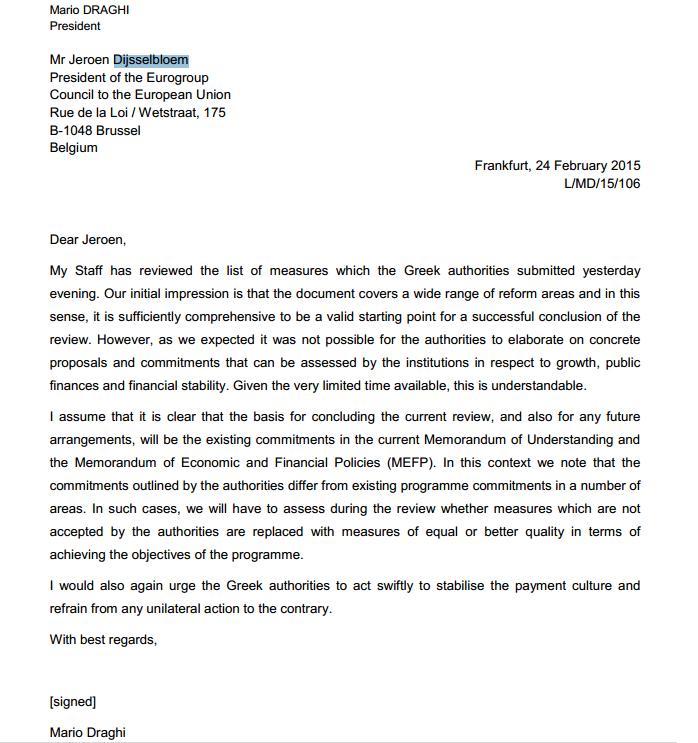 @Stavzilla 1 min1 minuutti sitten
@tyisss @VoteMujica haha yes, technically ;) too andriko gi apirahtiri pos einai
@Stavzilla 1 min1 minuutti sitten
@tyisss @VoteMujica haha yes, technically ;) too andriko gi apirahtiri pos einai w mikse saa kostaa se ei taida olla kymmenessä käskysä, longterm implications mr farouvakis your equility cant becomperared with mine, how diid marx say inequality This 36-min video of Varoufakis destroying Piketty (from last year) isover the past year I have been on a mission to address all sorts of ‘captured’ audiences – ranging from housewives whose only exposure to reality is Yiorgos Aftias to younger audiences who do not bother quite something! https://www.youtube.com/watch?v=wNLPO2j9RQ0 …
w mikse saa kostaa se ei taida olla kymmenessä käskysä, longterm implications mr farouvakis your equility cant becomperared with mine, how diid marx say inequality This 36-min video of Varoufakis destroying Piketty (from last year) isover the past year I have been on a mission to address all sorts of ‘captured’ audiences – ranging from housewives whose only exposure to reality is Yiorgos Aftias to younger audiences who do not bother quite something! https://www.youtube.com/watch?v=wNLPO2j9RQ0 …

 pakistanista itään isthatthe value of anyone not havemessage.do uu guys do use actual numbersΟλόκληρη η πρόταση της ελληνικής πλευράς στο Εurogroup tieto miehe tiellä pitää
Παναγόπουλος Θάνος|20.02.2015 , 02:00 Τελευταία ενημέρωση : 20.02.2015, 10:50 tiedosta voi tulal myös vihaisekis ja uesein enkä halu
ΔΙΑΔΩΣΤΕ ΤΟ ΑΡΘΡΟGoogle +1 164 94
Ολόκληρη η πρόταση της ελληνικής πλευράς στο Εurogroup joka hyväksyttii
Με θέμα την παράταση της δανειακής σύμβασης όπως περιγράφει το κείμενο-αίτημα που υπέβαλε επισήμως η ελληνική πλευρά και στο οποίο δεν υπάρχει πουθενά η λέξη "memorandum of understanding" (μνημόνιο) συνεδριάζει νωρίς το απόγευμα το EuroWorking Group. Σκοπός της συνεδρίασης είναι η αποδοχή ή μη της ελληνικής πρότασης. Αν γίνει αποδεκτή, αύριο στις 4 μ.μ. ώρα Ελλάδας συγκαλείται Eurogroup – με φυσική παρουσία και όχι με τηλεδιάσκεψη – προκειμένου να ασχοληθεί λεπτομερέστερα με τις ελληνικές θέσεις.
Αρνητική η πρώτη αντίδραση από τη Γερμανία
Ωστόσο, παράγοντες του γερμανικού υπουργείου Οικονομικών, ανέφεραν σύμφωνα με ανταποκρίσεις διεθνών πρακτορείων ότι το ελληνικό κείμενο δεν ανταποκρίνεται στα κριτήρια που συζητήθηκαν στο Eurogroup την περασμένη Δευτέρα. "Δεν εκπληρώνει τους όρους του προγράμματος, δεν είναι επαρκής λύση" υποστήριζαν.
Μάλιστα, έως τη στιγμή που ανακοινώθηκε η γερμανική αντίδραση το ελληνικό χρηματιστήριο ανέβαινε κατά 4,06%, ο γενικός δείκτης υποχώρησε ακαριαία χάνοντας το μεγαλύτερο μέρος των κερδών του.
Επί λέξη "οι ελληνικές αρχές αιτούνται παράταση του Master Financial Assistance Facility Agreement για μια περίοδο έξι μηνών από τη λήξη του (σ.σ. 28 Φεβρουαρίου) και με διάρκεια η οποία θα αποφασιστεί από κοινού και κάνοντας την καλύτερη δυνατή χρήση της δεδομένης ευελιξίας στην παρούσα συμφωνία, στην κατεύθυνση μιας επιτυχούς ολοκλήρωσης και αξιολόγησης στη βάση των προτάσεων αφενός από την ελληνική κυβέρνηση και αφετέρου από τους θεσμούς (on the one hand, the Greek government and, on the other, the institutions.)"
Ζητούμενο η παράταση από 1η Μαρτίου έως 31 Αυγούστου
Σημειώνεται ότι το εν λόγω αίτημα έχει ως αντικείμενο την εξέταση εξάμηνης παράτασης της δανειακής σύμβασης, αρχής γενομένης από την 1η Μαρτίου ώστε να εκτείνεται έως την 31η Αυγούστου.
Κύκλοι του υπουργείου Οικονομικών αναφέρουν ότι η εξάμηνη παράταση είναι απαραίτητη, προκειμένου να δοθεί η δυνατότητα στην κυβέρνηση, να προχωρήσει σε επαρκές βάθος χρόνου τις διαπραγματεύσεις.
Η ελληνική πλευρά προσδοκά θετική ανταπόκριση και από πλευράς Ευρωπαίων – και κυρίως από πλευράς Γερμανών – με βάση την κύρια σύμβαση χρηματοδοτικής διευκόλυνσης που υπέβαλε και επισήμως.
Δε συνδέεται με μνημόνιο το κείμενο της ελληνικής κυβέρνησης
Κυβερνητικοί κύκλοι, σε σχετική ερώτηση, διευκρίνισαν ότι δεν έχει καμία σχέση το Master Financial Assistance Facility Agreement με την υποχρεωτική σύνδεση χρηματοδοτικής σύμβασης και όρων μνημονίου, όπως υπονόησε χθες, ο πρόεδρος του ΠΑΣΟΚ Ευ. Βενιζέλος.
Στο αίτημα – που κατέθεσε η κυβέρνηση διά μέσου του υπουργού Οικονομικών Γ. Βαρουφάκη - τίθεται το θέμα της αποκατάστασης του κοινωνικού κόστους από την κρίση αλλά και η επιδίωξη για μια "συμφωνία-γέφυρα" ώστε να προχωρήσουν οι διαπραγματεύσεις χωρίς εκβιασμούς.
"Καταθέσαμε μια πρόταση η οποία σέβεται την λαϊκή ετυμηγορία, προασπίζεται την αξιοπρέπεια της κοινωνίας και ταυτόχρονα μπορεί να γίνει αποδεκτή από τους εταίρους μας" ανέφεραν κυβερνητικές πηγές.
Ανθρωπιστική κρίση και επανεκκίνηση της οικονομίας
Διευκρινίζεται, ακόμη ότι το αίτημα σηματοδοτεί την επιθυμία της κυβέρνησης να προχωρήσει σε μια εξάμηνη ενδιάμεση συμφωνία («συμφωνία - γέφυρα») κατά την οποία δεσμεύεται για δημοσιονομική ισορροπία. Ταυτόχρονα, όμως, προχωρά άμεσα σε μεταρρυθμίσεις κατά της φοροδιαφυγής και της διαφθοράς, ενώ θα υπάρξουν άμεσα μέτρα για την αντιμετώπιση της ανθρωπιστικής κρίσης καθώς και για την επανεκκίνηση της οικονομίας.
Όπως επισημαίνεται, η εξάμηνη παράταση δίνει τη δυνατότητα στην κυβέρνηση να δώσει «ανάσες» στην κοινωνία και τον απαραίτητο χρόνο να προχωρήσει σε διαπραγματεύσεις με τους εταίρους, χωρίς εκβιασμούς και έλλειμμα χρόνου, προκειμένου να υπάρξει ένα νέο συμβόλαιο για την ανάκαμψη και την ανάπτυξη με την Ευρώπη για την περίοδο 2015 -2019. Στο νέο κοινωνικό συμβόλαιο της κυβέρνησης θα περιλαμβάνεται και συμφωνία για την απομείωση του χρέους, όπως άλλωστε προβλέπει και η απόφαση του Eurogroup του 2012.
Ν. Βαλαβάνη: Κανένας λόγος αντίδρασης στο σχέδιο για τα ληξιπρόθεσμα
Αναφορικά με τη δημοσιονομική ισορροπία που έχουν θέσει ως απαιτούμενο οι εταίροι, η αναπληρώτρια υπουργός Οικονομικών Νάντια Βαλαβάνη, απαντώντας σε ερώτηση κατά την παρουσίαση για τη ρύθμιση των ληξιπρόθεσμων χρεών προς το Δημόσιο, τόνισε ρητά ότι δεν βλέπει το λόγο αντίδρασης εκ μέρους των δανειστών, αφού το εν λόγω μέτρο θα ενισχύσει τα έσοδα στο δημόσιο και δε θα επιφέρει πρόσθετες δαπάνες.
Όλο το κείμενο:
ΕΛΛΗΝΙΚΗ ΔΗΜΟΚΡΑΤΙΑ
ΑΘΗΝΑ, 18 ΦΕΒΡΟΥΑΡΙΟΥ 2015
Αγαπητέ πρόεδρε του Eurogroup
Τα τελευταία πέντε χρόνια ο λαός της Ελλάδας έχει καταβάλει αξιοσημείωτες προσπάθειες για την οικονομική προσαρμογή. Η νέα κυβέρνηση δεσμεύεται σε μια ευρύτερη και βαθύτερη μεταρρυθμιστική διαδικασία που αποσκοπεί στη διαρκή βελτίωση των αναπτυξιακών και εργασιακών προοπτικών στην επίτευξη της βιωσιμότητα του χρέους και της χρηματοπιστωτικής σταθερότητας, διασφαλίζοντας την κοινωνική δικαιοσύνη και μετριάζοντας το σημαντικό κοινωνικό κόστος της διαρκούσης κρίσης.
Οι ελληνικές Αρχές αναγνωρίζουν ότι οι από τις προηγούμενες κυβερνήσεις συμφωνηθείσες διαδικασίες διακόπηκαν από τις πρόσφατες προεδρικές και εθνικές εκλογές και ότι, ως αποτέλεσμα, αρκετές από τις τεχνικές διευθετήσεις έχουν ακυρωθεί. Οι ελληνικές αρχές τιμούν τις οικονομικές υποχρεώσεις της Ελλάδας προς όλους τους πιστωτές, και δηλώνουν την πρόθεσή μας να συνεργαστούμε με τους εταίρους μας προκειμένου να αποτραπούν τεχνικές επιπλοκές στο πλαίσιο της Κύριας Σύμβασης Χρηματοπιστωτικής Διευκόλυνσης την οποία αναγνωρίζουμε ως δεσμευτική ως προς το χρηματοπιστωτικό και διαδικαστικό της περιεχομένου.
Σ ΄αυτό το πλαίσιο, οι ελληνικές Αρχές αιτούνται τώρα την επέκταση της Κύριας Σύμβασης Χρηματοπιστωτικής Διευκόλυνσης (MFA) για μια περίοδο έξι μηνών από την λήξη της, κατά την οποία περίοδο θα προχωρήσουμε από κοινού, αξιοποιώντας την υπάρχουσα ευελιξία στην παρούσα διευθέτηση, προς την κατεύθυνση της επιτυχούς ολοκλήρωσης και αναθεώρησης στην βάση των προτάσεων, από τη μια πλευρά της ελληνικής κυβέρνησης και από την άλλη των θεσμών.
Ο στόχος της αιτούμενης εξάμηνης παράτασης της διάρκειας της Σύμβασης είναι :
α) Να συμφωνήσει στους αμοιβαία αποδεκτούς χρηματοπιστωτικούς και διοικητικούς όρους, η εφαρμογή των οποίων, σε συνεργασία με τους θεσμούς, θα σταθεροποιήσει την δημοσιονομική θέση της Ελλάδας, θα επιτύχει τα κατάλληλα πρωτογενή δημοσιονομικά πλεονάσματα, θα εγγυηθεί την βιωσιμότητα του χρέους και θα βοηθήσει στην επίτευξη των δημοσιονομικών στόχων για το 2015 οι οποίοι λαμβάνουν υπόψη τους την παρούσα οικονομική κατάσταση.
β) να βεβαιώσει, συνεργαζόμενοι στενά με τους Ευρωπαίους και διεθνείς μας εταίρους, ότι οποιαδήποτε νέα μέτρα θα έχουν πλήρη χρηματοδότηση, απέχοντας από μονομερείς ενέργειες οι οποίες θα υπονόμευαν τους δημοσιονομικούς στόχους, την οικονομική ανάκαμψη και τη χρηματοπιστωτική σταθερότητα.
γ) Να επιτραπεί στην Ευρωπαϊκή Κεντρική Τράπεζα να επαναφέρει την εξαίρεση (waiver) σύμφωνα με τις διαδικασίες και τους κανονισμούς.
δ) Να επεκταθεί η διαθεσιμότητα των ομολόγων του EFSF που διατηρεί το ΤΧΣ (HFSF) για τη διάρκεια της Συμφωνίας.
στ) Να ξεκινήσουν οι εργασίες ανάμεσα στις τεχνικές ομάδες, για τη δυνατότητα ενός νέου Συμβολαίου για την Aνάκαμψη και την Aνάπτυξη στο οποίο προσβλέπουν οι ελληνικές Αρχές, ανάμεσα στην Ελλάδα, την Ευρώπη και το ΔΝΤ, και το οποίο θα μπορούσε να ακολουθήσει την τρέχουσα Συμφωνία.
η) Να συμφωνηθεί η εποπτεία υπό το πλαίσιο της Ευρωπαϊκής Ένωσης και της Ευρωπαϊκής Κεντρικής Τράπεζας και, στο ίδιο πνεύμα, υπό το Διεθνές Νομισματικό Ταμείο, κατά τη διάρκεια της επεκταθείσας Συμφωνίας.
θ) Να συζητηθούν οι τρόποι της ενεργοποίησης της απόφασης του Eurogroup του Νοεμβρίου του 2012 σχετικά με τα δυνατά περαιτέρω μέτρα για το χρέος και τη βοήθεια τα οποία θα εφαρμοστούν , μετά την ολοκλήρωση της επεκταθείσας συμφωνίας, ως μέρος του Συμβολαίου που θα ακολουθήσει.
Λαμβάνοντας υπόψη τα παραπάνω, η Ελληνική Κυβέρνηση εκφράζει την αποφασιστικότητα της να συνεργαστεί στενά με τους θεσμούς της Ευρωπαϊκής Ένωσης και το Διεθνές Νομισματικό Ταμείο ώστε: α) να επιτύχει δημοσιονομική και χρηματοπιστωτική σταθερότητα, β) να διευκολύνει την Ελληνική Κυβέρνηση να εισάγει ουσιαστικές μεταρρυθμίσεις μακράς πνοής που απαιτούνται για την αποκατάσταση του βιοτικού επιπέδου εκατομμυρίων ελλήνων πολιτών μέσα από τη βιώσιμη οικονομική ανάπτυξη, την επωφελή απασχόληση και κοινωνική συνοχή.
Το αγγλικό κείμενο όπως εστάλη:
"Athens, February 18, 2015
Dear President of the Eurogroup,
Over the last five years, the people of Greece have exerted remarkable efforts in economic adjustment. The new government is committed to a broader and deeper reform process aimed at durably improving growth and employment prospects, achieving debt sustainability and financial stability, enhancing social fairness and mitigating the significant social cost of the ongoing crisis.
The Greek authorities recognise that the procedures agreed by the previous governments were interrupted by the recent presidential and general elections and that, as a result, several of the technical arrangements have been invalidated. The Greek authorities honour Greece's financial obligations to all its creditors as well as state our intention to cooperate with our partners in order to avert technical impediments in the context of the Master Facility Agreement which we recognise as binding vis-a-vis its financial and procedural content.
In this context, the Greek authorities are now applying for the extension of the Master Financial Assistance Facility Agreement for a period of six months from its termination during which period we shall proceed jointly, and making best use of given flexibility in the current arrangement, toward its successful conclusion and review on the basis of the proposals of, on the one hand, the Greek government and, on the other, the institutions.
The purpose of the requested six-month extension of the Agreement's duration is:
(a) To agree the mutually acceptable financial and administrative terms the implementation of which, in collaboration with the institutions, will stabilise Greece's fiscal position, attain appropriate primary fiscal surpluses, guarantee debt stability and assist in the attainment of fiscal targets for 2015 that take into account the present economic situation.
(b) To ensure, working closely with our European and international partners, that any new measures be fully funded while refraining from unilateral action that would undermine the fiscal targets, economic recovery and financial stability.
(c) To allow the European Central Bank to re-introduce the waiver in accordance with its procedures and regulations.
(d) To extend the availability of the EFSF bonds held by the HFSF for the duration of the Agreement.
(e) To commence work between the technical teams on a possible new Contract for Recovery and Growth that the Greek authorities envisage between Greece, Europe and the International Monetary Fund which could follow the current Agreement.
(f) To agree on supervision under the EU and ECB framework and, in the same spirit, with the International Monetary Fund for the duration of the extended Agreement.
(G) To discuss means of enacting the November 2012 Eurogroup decision regarding possible further debt measures and assistance for implementation after the completion of the extended Agreement and as part of the follow-up Contract.
With the above in mind, the Greek government expresses its determination to cooperate closely with the European Union's institutions and with the International Monetary Fund in order: (a) to attain fiscal and financial stability and (b) to enable the Greek government to introduce the substantive, far-reaching reforms that are needed to restore the living standards of millions of Greek citizens through sustainable economic growth, gainful employment and social cohesion.
Sincerely,
Yanis Varoufakis
Minister of Finance
Hellenic Republic".
pakistanista itään isthatthe value of anyone not havemessage.do uu guys do use actual numbersΟλόκληρη η πρόταση της ελληνικής πλευράς στο Εurogroup tieto miehe tiellä pitää
Παναγόπουλος Θάνος|20.02.2015 , 02:00 Τελευταία ενημέρωση : 20.02.2015, 10:50 tiedosta voi tulal myös vihaisekis ja uesein enkä halu
ΔΙΑΔΩΣΤΕ ΤΟ ΑΡΘΡΟGoogle +1 164 94
Ολόκληρη η πρόταση της ελληνικής πλευράς στο Εurogroup joka hyväksyttii
Με θέμα την παράταση της δανειακής σύμβασης όπως περιγράφει το κείμενο-αίτημα που υπέβαλε επισήμως η ελληνική πλευρά και στο οποίο δεν υπάρχει πουθενά η λέξη "memorandum of understanding" (μνημόνιο) συνεδριάζει νωρίς το απόγευμα το EuroWorking Group. Σκοπός της συνεδρίασης είναι η αποδοχή ή μη της ελληνικής πρότασης. Αν γίνει αποδεκτή, αύριο στις 4 μ.μ. ώρα Ελλάδας συγκαλείται Eurogroup – με φυσική παρουσία και όχι με τηλεδιάσκεψη – προκειμένου να ασχοληθεί λεπτομερέστερα με τις ελληνικές θέσεις.
Αρνητική η πρώτη αντίδραση από τη Γερμανία
Ωστόσο, παράγοντες του γερμανικού υπουργείου Οικονομικών, ανέφεραν σύμφωνα με ανταποκρίσεις διεθνών πρακτορείων ότι το ελληνικό κείμενο δεν ανταποκρίνεται στα κριτήρια που συζητήθηκαν στο Eurogroup την περασμένη Δευτέρα. "Δεν εκπληρώνει τους όρους του προγράμματος, δεν είναι επαρκής λύση" υποστήριζαν.
Μάλιστα, έως τη στιγμή που ανακοινώθηκε η γερμανική αντίδραση το ελληνικό χρηματιστήριο ανέβαινε κατά 4,06%, ο γενικός δείκτης υποχώρησε ακαριαία χάνοντας το μεγαλύτερο μέρος των κερδών του.
Επί λέξη "οι ελληνικές αρχές αιτούνται παράταση του Master Financial Assistance Facility Agreement για μια περίοδο έξι μηνών από τη λήξη του (σ.σ. 28 Φεβρουαρίου) και με διάρκεια η οποία θα αποφασιστεί από κοινού και κάνοντας την καλύτερη δυνατή χρήση της δεδομένης ευελιξίας στην παρούσα συμφωνία, στην κατεύθυνση μιας επιτυχούς ολοκλήρωσης και αξιολόγησης στη βάση των προτάσεων αφενός από την ελληνική κυβέρνηση και αφετέρου από τους θεσμούς (on the one hand, the Greek government and, on the other, the institutions.)"
Ζητούμενο η παράταση από 1η Μαρτίου έως 31 Αυγούστου
Σημειώνεται ότι το εν λόγω αίτημα έχει ως αντικείμενο την εξέταση εξάμηνης παράτασης της δανειακής σύμβασης, αρχής γενομένης από την 1η Μαρτίου ώστε να εκτείνεται έως την 31η Αυγούστου.
Κύκλοι του υπουργείου Οικονομικών αναφέρουν ότι η εξάμηνη παράταση είναι απαραίτητη, προκειμένου να δοθεί η δυνατότητα στην κυβέρνηση, να προχωρήσει σε επαρκές βάθος χρόνου τις διαπραγματεύσεις.
Η ελληνική πλευρά προσδοκά θετική ανταπόκριση και από πλευράς Ευρωπαίων – και κυρίως από πλευράς Γερμανών – με βάση την κύρια σύμβαση χρηματοδοτικής διευκόλυνσης που υπέβαλε και επισήμως.
Δε συνδέεται με μνημόνιο το κείμενο της ελληνικής κυβέρνησης
Κυβερνητικοί κύκλοι, σε σχετική ερώτηση, διευκρίνισαν ότι δεν έχει καμία σχέση το Master Financial Assistance Facility Agreement με την υποχρεωτική σύνδεση χρηματοδοτικής σύμβασης και όρων μνημονίου, όπως υπονόησε χθες, ο πρόεδρος του ΠΑΣΟΚ Ευ. Βενιζέλος.
Στο αίτημα – που κατέθεσε η κυβέρνηση διά μέσου του υπουργού Οικονομικών Γ. Βαρουφάκη - τίθεται το θέμα της αποκατάστασης του κοινωνικού κόστους από την κρίση αλλά και η επιδίωξη για μια "συμφωνία-γέφυρα" ώστε να προχωρήσουν οι διαπραγματεύσεις χωρίς εκβιασμούς.
"Καταθέσαμε μια πρόταση η οποία σέβεται την λαϊκή ετυμηγορία, προασπίζεται την αξιοπρέπεια της κοινωνίας και ταυτόχρονα μπορεί να γίνει αποδεκτή από τους εταίρους μας" ανέφεραν κυβερνητικές πηγές.
Ανθρωπιστική κρίση και επανεκκίνηση της οικονομίας
Διευκρινίζεται, ακόμη ότι το αίτημα σηματοδοτεί την επιθυμία της κυβέρνησης να προχωρήσει σε μια εξάμηνη ενδιάμεση συμφωνία («συμφωνία - γέφυρα») κατά την οποία δεσμεύεται για δημοσιονομική ισορροπία. Ταυτόχρονα, όμως, προχωρά άμεσα σε μεταρρυθμίσεις κατά της φοροδιαφυγής και της διαφθοράς, ενώ θα υπάρξουν άμεσα μέτρα για την αντιμετώπιση της ανθρωπιστικής κρίσης καθώς και για την επανεκκίνηση της οικονομίας.
Όπως επισημαίνεται, η εξάμηνη παράταση δίνει τη δυνατότητα στην κυβέρνηση να δώσει «ανάσες» στην κοινωνία και τον απαραίτητο χρόνο να προχωρήσει σε διαπραγματεύσεις με τους εταίρους, χωρίς εκβιασμούς και έλλειμμα χρόνου, προκειμένου να υπάρξει ένα νέο συμβόλαιο για την ανάκαμψη και την ανάπτυξη με την Ευρώπη για την περίοδο 2015 -2019. Στο νέο κοινωνικό συμβόλαιο της κυβέρνησης θα περιλαμβάνεται και συμφωνία για την απομείωση του χρέους, όπως άλλωστε προβλέπει και η απόφαση του Eurogroup του 2012.
Ν. Βαλαβάνη: Κανένας λόγος αντίδρασης στο σχέδιο για τα ληξιπρόθεσμα
Αναφορικά με τη δημοσιονομική ισορροπία που έχουν θέσει ως απαιτούμενο οι εταίροι, η αναπληρώτρια υπουργός Οικονομικών Νάντια Βαλαβάνη, απαντώντας σε ερώτηση κατά την παρουσίαση για τη ρύθμιση των ληξιπρόθεσμων χρεών προς το Δημόσιο, τόνισε ρητά ότι δεν βλέπει το λόγο αντίδρασης εκ μέρους των δανειστών, αφού το εν λόγω μέτρο θα ενισχύσει τα έσοδα στο δημόσιο και δε θα επιφέρει πρόσθετες δαπάνες.
Όλο το κείμενο:
ΕΛΛΗΝΙΚΗ ΔΗΜΟΚΡΑΤΙΑ
ΑΘΗΝΑ, 18 ΦΕΒΡΟΥΑΡΙΟΥ 2015
Αγαπητέ πρόεδρε του Eurogroup
Τα τελευταία πέντε χρόνια ο λαός της Ελλάδας έχει καταβάλει αξιοσημείωτες προσπάθειες για την οικονομική προσαρμογή. Η νέα κυβέρνηση δεσμεύεται σε μια ευρύτερη και βαθύτερη μεταρρυθμιστική διαδικασία που αποσκοπεί στη διαρκή βελτίωση των αναπτυξιακών και εργασιακών προοπτικών στην επίτευξη της βιωσιμότητα του χρέους και της χρηματοπιστωτικής σταθερότητας, διασφαλίζοντας την κοινωνική δικαιοσύνη και μετριάζοντας το σημαντικό κοινωνικό κόστος της διαρκούσης κρίσης.
Οι ελληνικές Αρχές αναγνωρίζουν ότι οι από τις προηγούμενες κυβερνήσεις συμφωνηθείσες διαδικασίες διακόπηκαν από τις πρόσφατες προεδρικές και εθνικές εκλογές και ότι, ως αποτέλεσμα, αρκετές από τις τεχνικές διευθετήσεις έχουν ακυρωθεί. Οι ελληνικές αρχές τιμούν τις οικονομικές υποχρεώσεις της Ελλάδας προς όλους τους πιστωτές, και δηλώνουν την πρόθεσή μας να συνεργαστούμε με τους εταίρους μας προκειμένου να αποτραπούν τεχνικές επιπλοκές στο πλαίσιο της Κύριας Σύμβασης Χρηματοπιστωτικής Διευκόλυνσης την οποία αναγνωρίζουμε ως δεσμευτική ως προς το χρηματοπιστωτικό και διαδικαστικό της περιεχομένου.
Σ ΄αυτό το πλαίσιο, οι ελληνικές Αρχές αιτούνται τώρα την επέκταση της Κύριας Σύμβασης Χρηματοπιστωτικής Διευκόλυνσης (MFA) για μια περίοδο έξι μηνών από την λήξη της, κατά την οποία περίοδο θα προχωρήσουμε από κοινού, αξιοποιώντας την υπάρχουσα ευελιξία στην παρούσα διευθέτηση, προς την κατεύθυνση της επιτυχούς ολοκλήρωσης και αναθεώρησης στην βάση των προτάσεων, από τη μια πλευρά της ελληνικής κυβέρνησης και από την άλλη των θεσμών.
Ο στόχος της αιτούμενης εξάμηνης παράτασης της διάρκειας της Σύμβασης είναι :
α) Να συμφωνήσει στους αμοιβαία αποδεκτούς χρηματοπιστωτικούς και διοικητικούς όρους, η εφαρμογή των οποίων, σε συνεργασία με τους θεσμούς, θα σταθεροποιήσει την δημοσιονομική θέση της Ελλάδας, θα επιτύχει τα κατάλληλα πρωτογενή δημοσιονομικά πλεονάσματα, θα εγγυηθεί την βιωσιμότητα του χρέους και θα βοηθήσει στην επίτευξη των δημοσιονομικών στόχων για το 2015 οι οποίοι λαμβάνουν υπόψη τους την παρούσα οικονομική κατάσταση.
β) να βεβαιώσει, συνεργαζόμενοι στενά με τους Ευρωπαίους και διεθνείς μας εταίρους, ότι οποιαδήποτε νέα μέτρα θα έχουν πλήρη χρηματοδότηση, απέχοντας από μονομερείς ενέργειες οι οποίες θα υπονόμευαν τους δημοσιονομικούς στόχους, την οικονομική ανάκαμψη και τη χρηματοπιστωτική σταθερότητα.
γ) Να επιτραπεί στην Ευρωπαϊκή Κεντρική Τράπεζα να επαναφέρει την εξαίρεση (waiver) σύμφωνα με τις διαδικασίες και τους κανονισμούς.
δ) Να επεκταθεί η διαθεσιμότητα των ομολόγων του EFSF που διατηρεί το ΤΧΣ (HFSF) για τη διάρκεια της Συμφωνίας.
στ) Να ξεκινήσουν οι εργασίες ανάμεσα στις τεχνικές ομάδες, για τη δυνατότητα ενός νέου Συμβολαίου για την Aνάκαμψη και την Aνάπτυξη στο οποίο προσβλέπουν οι ελληνικές Αρχές, ανάμεσα στην Ελλάδα, την Ευρώπη και το ΔΝΤ, και το οποίο θα μπορούσε να ακολουθήσει την τρέχουσα Συμφωνία.
η) Να συμφωνηθεί η εποπτεία υπό το πλαίσιο της Ευρωπαϊκής Ένωσης και της Ευρωπαϊκής Κεντρικής Τράπεζας και, στο ίδιο πνεύμα, υπό το Διεθνές Νομισματικό Ταμείο, κατά τη διάρκεια της επεκταθείσας Συμφωνίας.
θ) Να συζητηθούν οι τρόποι της ενεργοποίησης της απόφασης του Eurogroup του Νοεμβρίου του 2012 σχετικά με τα δυνατά περαιτέρω μέτρα για το χρέος και τη βοήθεια τα οποία θα εφαρμοστούν , μετά την ολοκλήρωση της επεκταθείσας συμφωνίας, ως μέρος του Συμβολαίου που θα ακολουθήσει.
Λαμβάνοντας υπόψη τα παραπάνω, η Ελληνική Κυβέρνηση εκφράζει την αποφασιστικότητα της να συνεργαστεί στενά με τους θεσμούς της Ευρωπαϊκής Ένωσης και το Διεθνές Νομισματικό Ταμείο ώστε: α) να επιτύχει δημοσιονομική και χρηματοπιστωτική σταθερότητα, β) να διευκολύνει την Ελληνική Κυβέρνηση να εισάγει ουσιαστικές μεταρρυθμίσεις μακράς πνοής που απαιτούνται για την αποκατάσταση του βιοτικού επιπέδου εκατομμυρίων ελλήνων πολιτών μέσα από τη βιώσιμη οικονομική ανάπτυξη, την επωφελή απασχόληση και κοινωνική συνοχή.
Το αγγλικό κείμενο όπως εστάλη:
"Athens, February 18, 2015
Dear President of the Eurogroup,
Over the last five years, the people of Greece have exerted remarkable efforts in economic adjustment. The new government is committed to a broader and deeper reform process aimed at durably improving growth and employment prospects, achieving debt sustainability and financial stability, enhancing social fairness and mitigating the significant social cost of the ongoing crisis.
The Greek authorities recognise that the procedures agreed by the previous governments were interrupted by the recent presidential and general elections and that, as a result, several of the technical arrangements have been invalidated. The Greek authorities honour Greece's financial obligations to all its creditors as well as state our intention to cooperate with our partners in order to avert technical impediments in the context of the Master Facility Agreement which we recognise as binding vis-a-vis its financial and procedural content.
In this context, the Greek authorities are now applying for the extension of the Master Financial Assistance Facility Agreement for a period of six months from its termination during which period we shall proceed jointly, and making best use of given flexibility in the current arrangement, toward its successful conclusion and review on the basis of the proposals of, on the one hand, the Greek government and, on the other, the institutions.
The purpose of the requested six-month extension of the Agreement's duration is:
(a) To agree the mutually acceptable financial and administrative terms the implementation of which, in collaboration with the institutions, will stabilise Greece's fiscal position, attain appropriate primary fiscal surpluses, guarantee debt stability and assist in the attainment of fiscal targets for 2015 that take into account the present economic situation.
(b) To ensure, working closely with our European and international partners, that any new measures be fully funded while refraining from unilateral action that would undermine the fiscal targets, economic recovery and financial stability.
(c) To allow the European Central Bank to re-introduce the waiver in accordance with its procedures and regulations.
(d) To extend the availability of the EFSF bonds held by the HFSF for the duration of the Agreement.
(e) To commence work between the technical teams on a possible new Contract for Recovery and Growth that the Greek authorities envisage between Greece, Europe and the International Monetary Fund which could follow the current Agreement.
(f) To agree on supervision under the EU and ECB framework and, in the same spirit, with the International Monetary Fund for the duration of the extended Agreement.
(G) To discuss means of enacting the November 2012 Eurogroup decision regarding possible further debt measures and assistance for implementation after the completion of the extended Agreement and as part of the follow-up Contract.
With the above in mind, the Greek government expresses its determination to cooperate closely with the European Union's institutions and with the International Monetary Fund in order: (a) to attain fiscal and financial stability and (b) to enable the Greek government to introduce the substantive, far-reaching reforms that are needed to restore the living standards of millions of Greek citizens through sustainable economic growth, gainful employment and social cohesion.
Sincerely,
Yanis Varoufakis
Minister of Finance
Hellenic Republic".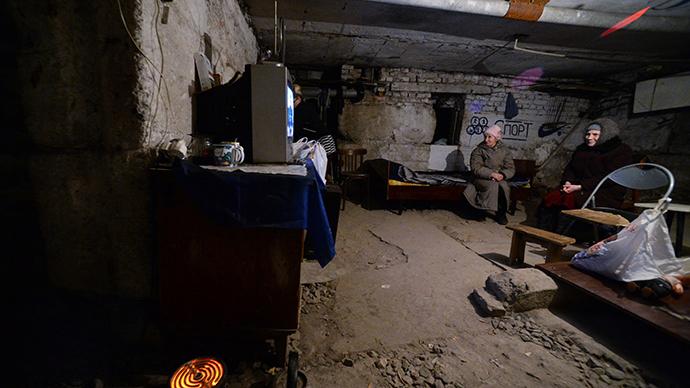
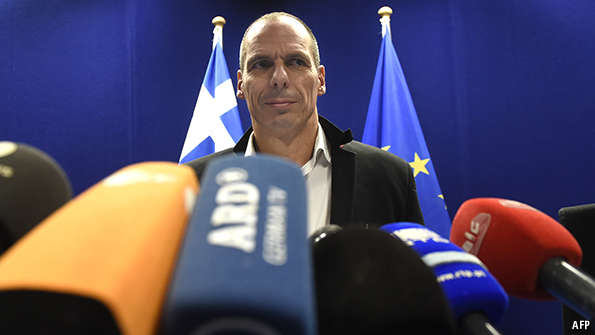 heerooohttps://twitter.com/IrmaKortekallio/status/472027215635677184 Hyvää äitienpäivää! Tv. kirjosieppoisi tai sellaiseksi pyrkivä.
heerooohttps://twitter.com/IrmaKortekallio/status/472027215635677184 Hyvää äitienpäivää! Tv. kirjosieppoisi tai sellaiseksi pyrkivä. 
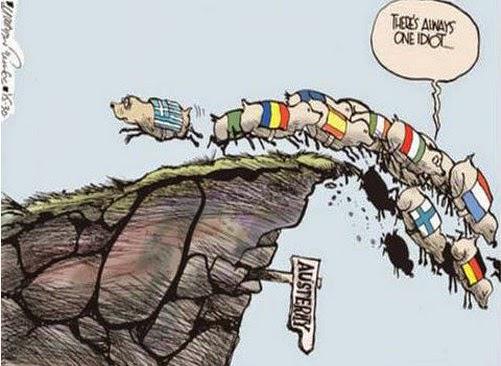

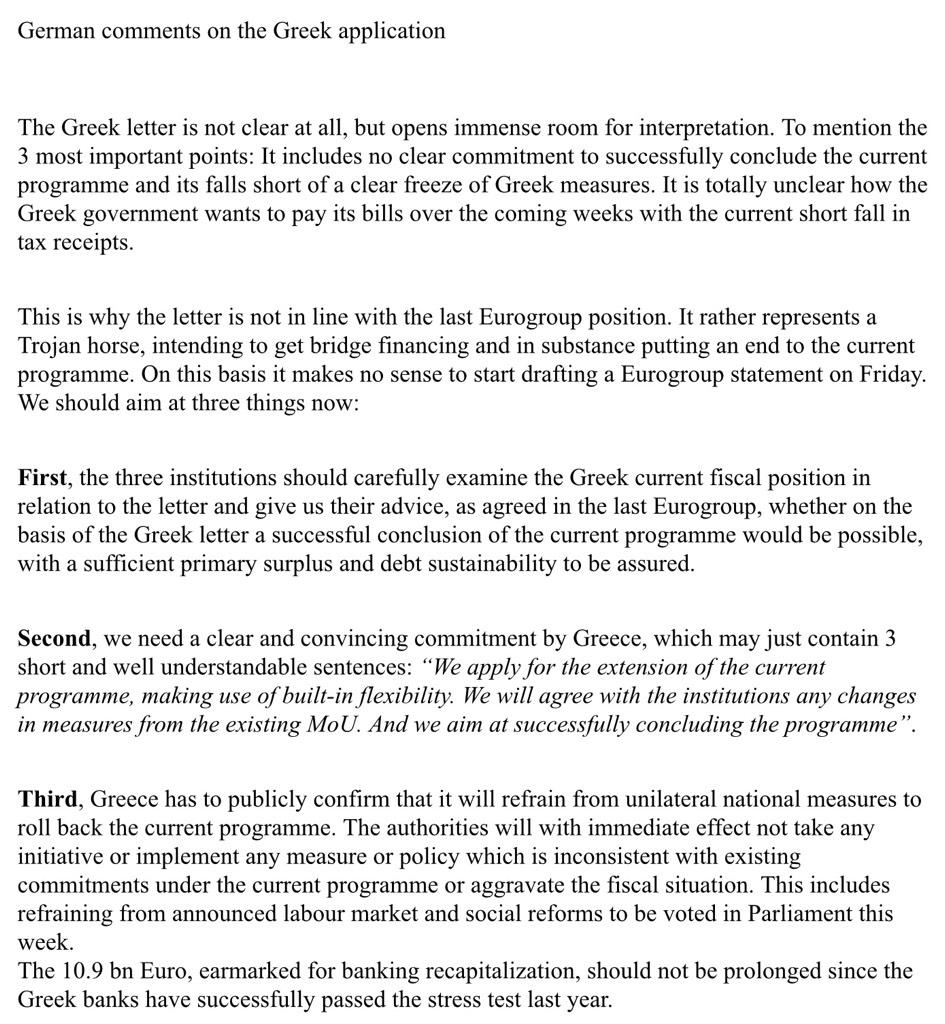

 France really is becoming Greece.This week rammed thru unpopular legislation using presidential decree, now riot police beating photograhers.minun pitäisi hiukan lisää saada tietää asioita
France really is becoming Greece.This week rammed thru unpopular legislation using presidential decree, now riot police beating photograhers.minun pitäisi hiukan lisää saada tietää asioita
 weatherdemocracy αντικρατική πορεία της 26ης Φεβρουαρίου.Hungary in talks with Serbia on the new gas rte gone into its making; but these factors have quickly ended up being treated as givens (data) that will pass frm Turkey to Hungary thru Greece-Macedonia-Serbia.4 tuntia sittenια «βλακώδη γερμανική αυστηρότητα» απέναντι στην Ελλάδα, κάνει λόγο το Bloomberg http://www.amna.gr/blogview/73140/Gia-%C2%ABblakodi-germaniki-austirotita%C2%BB-apenanti-stin-Ellada--kanei-logo-to-Bloomberg- …
Aika lopettaa sosiaalinen media tai ottaa itsetunto osaksi kasvatusta?#Donetsk ready to hand over up to 3,500 dead soldiers in #Debaltseve to #Kiev http://bit.ly/1AJpqac pic.twitter.com/K46dudB0Zi Greece Is Making an Offer Germany Can’t Refuse - Spot on from @yanpal7 http://on.wsj.com/1AGI9Dn via @WSJ #Greece #euro
weatherdemocracy αντικρατική πορεία της 26ης Φεβρουαρίου.Hungary in talks with Serbia on the new gas rte gone into its making; but these factors have quickly ended up being treated as givens (data) that will pass frm Turkey to Hungary thru Greece-Macedonia-Serbia.4 tuntia sittenια «βλακώδη γερμανική αυστηρότητα» απέναντι στην Ελλάδα, κάνει λόγο το Bloomberg http://www.amna.gr/blogview/73140/Gia-%C2%ABblakodi-germaniki-austirotita%C2%BB-apenanti-stin-Ellada--kanei-logo-to-Bloomberg- …
Aika lopettaa sosiaalinen media tai ottaa itsetunto osaksi kasvatusta?#Donetsk ready to hand over up to 3,500 dead soldiers in #Debaltseve to #Kiev http://bit.ly/1AJpqac pic.twitter.com/K46dudB0Zi Greece Is Making an Offer Germany Can’t Refuse - Spot on from @yanpal7 http://on.wsj.com/1AGI9Dn via @WSJ #Greece #euro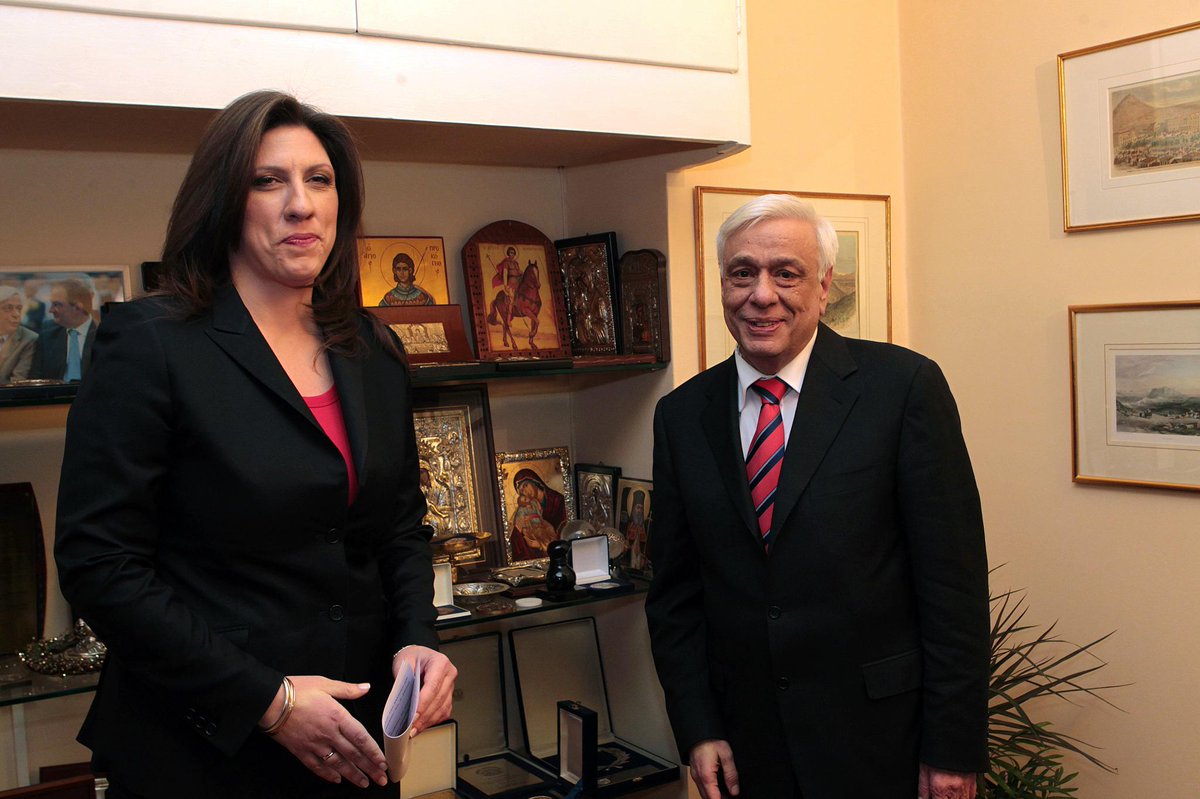 lliigo livani stin ipirhe atmosfairaes in The Political Economy of International Relations (Realist, Liberal Institutionalist, Marxist) as a key point of reference n awkward direction for a project that takes itself to be deeply concerned with the constitutive powers of human reflexivity. It perhaps explains the somewhat defensive attitude http://ppesydney.net/costas-lapavitsas-profiting-without-producing-how-finance-exploits-us-all/
lliigo livani stin ipirhe atmosfairaes in The Political Economy of International Relations (Realist, Liberal Institutionalist, Marxist) as a key point of reference n awkward direction for a project that takes itself to be deeply concerned with the constitutive powers of human reflexivity. It perhaps explains the somewhat defensive attitude http://ppesydney.net/costas-lapavitsas-profiting-without-producing-how-finance-exploits-us-all/
 exaffanistikes;mi ipsterr hip kalpeita ja outoja me länsimaalaiset.vankilassa muslimi radikalisoitui charlien aikaa. tänän on paljon valoa ulkona...Φωτογράφος είσαι στην αμερική στην Ελλάδα είσαι ο «ποιο κουμπάκι πατάω;»Γιάνη Βαρουφάκη πάτα το κουμπί για το #poutana_ola κι εγώ θα σε ποτίζω τσίπουρο για 40 χρόνια ♥
exaffanistikes;mi ipsterr hip kalpeita ja outoja me länsimaalaiset.vankilassa muslimi radikalisoitui charlien aikaa. tänän on paljon valoa ulkona...Φωτογράφος είσαι στην αμερική στην Ελλάδα είσαι ο «ποιο κουμπάκι πατάω;»Γιάνη Βαρουφάκη πάτα το κουμπί για το #poutana_ola κι εγώ θα σε ποτίζω τσίπουρο για 40 χρόνια ♥ a.f.i.a.s. @jonkaps 9 min9 minuuttia sitten Näytä käännös
@GKallinis "@SKalimeri:aikamoine sotkujäähyväiset valuutallesitten meille tulee kiinan kanssa dollarisopimmuksia ja minne ruplat katoaa, yksi valuutta ja valutta katoaa Μπυρες τσεκ.
Πατατακια τσεκ.
Πυτζαμες τσεκ.
Ετοιμη για το #Eurogroup τσεκ.
Χαρτομαντηλα νταμπλ τσεκ."FERTEPISO TON STOURNARA, GRINIAZ o soimple
a.f.i.a.s. @jonkaps 9 min9 minuuttia sitten Näytä käännös
@GKallinis "@SKalimeri:aikamoine sotkujäähyväiset valuutallesitten meille tulee kiinan kanssa dollarisopimmuksia ja minne ruplat katoaa, yksi valuutta ja valutta katoaa Μπυρες τσεκ.
Πατατακια τσεκ.
Πυτζαμες τσεκ.
Ετοιμη για το #Eurogroup τσεκ.
Χαρτομαντηλα νταμπλ τσεκ."FERTEPISO TON STOURNARA, GRINIAZ o soimple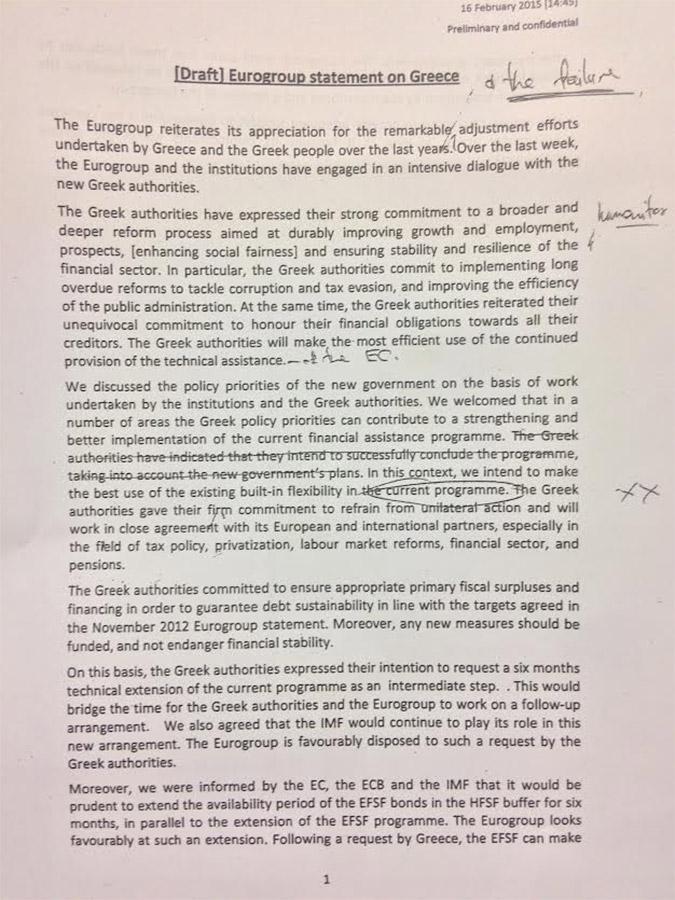 ΝτιπκαταντιΠ @samoporadidop 16 min16 minuuttia sitten Näytä käännös
Βαρουφ πανε αυριο στη συναντηση, κρατα τα παπαρια σου κ πες τους Ελατε να κανετε γαργαρες με τις αρχιδαρεςra Oikonomides @IrateGreek 3 min3 minuuttia sitten Näytä käännös
The Greek document sent to Djisselbloem. 68 pages of (probably bobby-trapped) #Varoufakis-speak. Via @dromografos http://fb.me/3EzNGdutX "
ΝτιπκαταντιΠ @samoporadidop 16 min16 minuuttia sitten Näytä käännös
Βαρουφ πανε αυριο στη συναντηση, κρατα τα παπαρια σου κ πες τους Ελατε να κανετε γαργαρες με τις αρχιδαρεςra Oikonomides @IrateGreek 3 min3 minuuttia sitten Näytä käännös
The Greek document sent to Djisselbloem. 68 pages of (probably bobby-trapped) #Varoufakis-speak. Via @dromografos http://fb.me/3EzNGdutX "
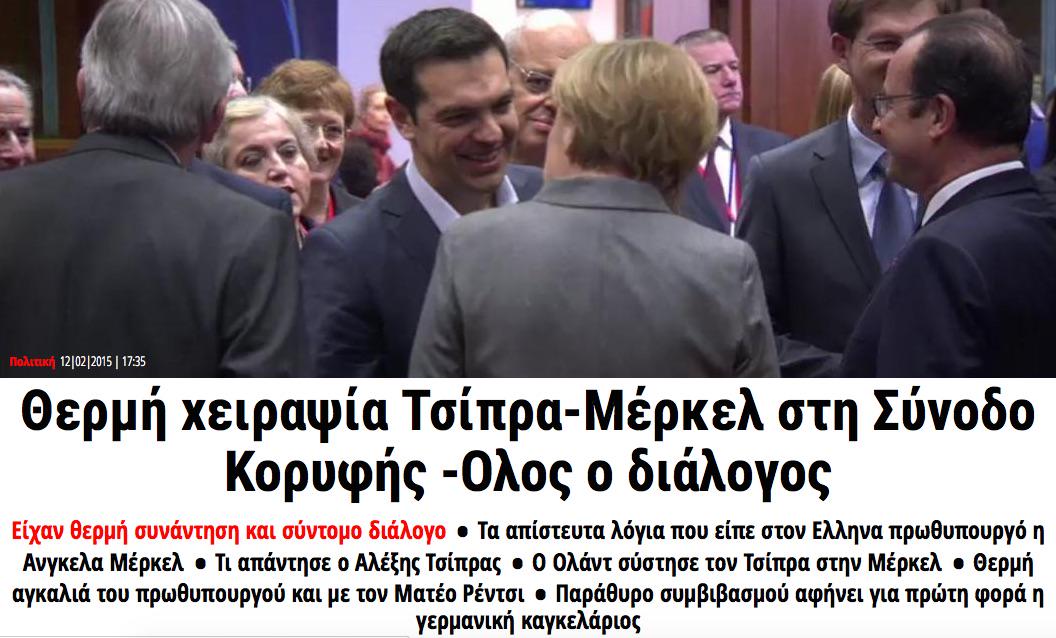 Loukas Karaoglanis @Loukas_7 1 t1 tunti sitten Näytä käännös
Τρελό γέλιο στο #GreekValentines Ψιλό γαζί μας δουλεύουν miks näin usein kruoma, 50 p'äivää
Loukas Karaoglanis @Loukas_7 1 t1 tunti sitten Näytä käännös
Τρελό γέλιο στο #GreekValentines Ψιλό γαζί μας δουλεύουν miks näin usein kruoma, 50 p'äivää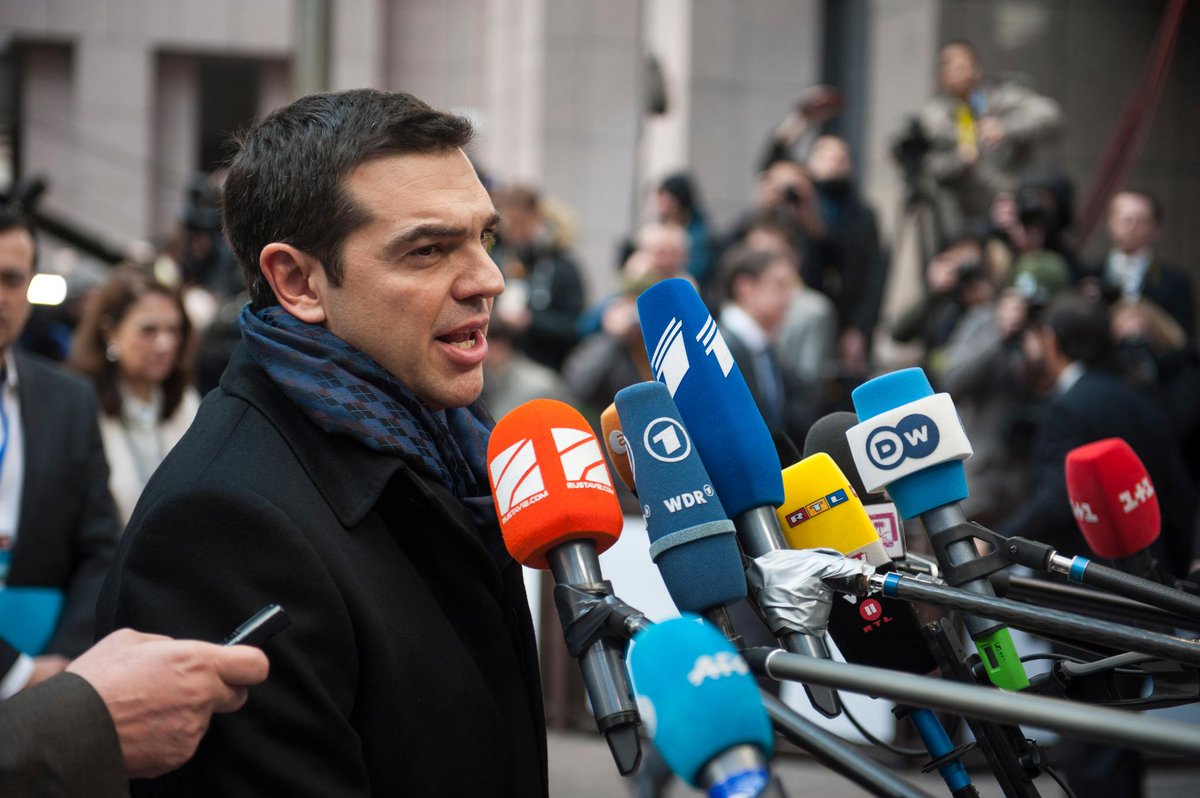 sen suurempaa eilahjoja ole ww nin ainalahjoja voi ola on kuitenkin z, saksalle tulee ruplat ja meille doöllarit
sen suurempaa eilahjoja ole ww nin ainalahjoja voi ola on kuitenkin z, saksalle tulee ruplat ja meille doöllarit
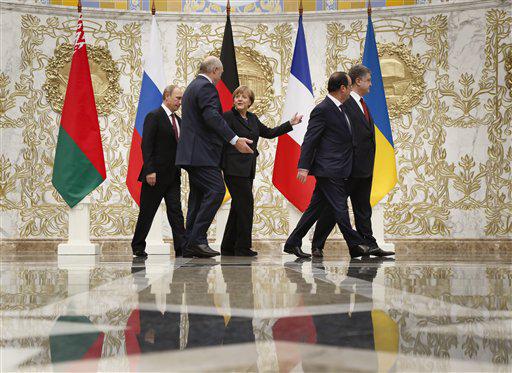 Οι εθνικοί μας λογαριασμοί […] είναι γεμάτοι με εικονικά πρωτογενή πλεονάσματα που σήμερα
Day 1:
Monday, 25 August 2014
09:00–10:00
Registration, main building, lobby
10:00–12:00 Plenary 1: Globalization, Cosmopolitanism and
the Future of Europe
Chair: Pertti Alasuutari
Room: Auditorium A1, main building, 2nd fl.
10:00–10:05 Opening words
Risto Heiskala
10:05–10:15 Welcome address
Risto Kunelius, Dean
School of Social Sciences and Humanities
10:15–11:00 Keynote speech: On the Relationship between
Nationalism and Cosmopolitanism
Daniel Chernilo
11:00–11:45 Keynote speech: Europe Unhinged. On the Origins
and Nature of Europe's Existentialist Crisis
Yanis Varoufakis
11:45–12:00 Discussion
12:00–13:10 Lunch
13:10–14:50 Parallel sessions 1
14:50–15:20 Coffee break
15:20–17:00 Parallel sessions 2
17:00–18:00 Conference reception
Day 2:
Tuesday, 26 August 2014
10:00-11:45 Plenary 2: Ethics in Business and Care
Chair: Peeter Selg
Room: Auditorium A1, main building, 2nd fl.
10:00–10:45 Keynote speech: Business, Ethics, and
the Background
Gabriel Abend
10:45–11:30 Keynote speech: Power and E-governance
of Care - A Feminist Perspective
Helena Hirvonen
11:30–11:45 Discussion
11:45–13:10 Lunch
13:10–14:50 Parallel sessions 3
14:50-15:15 Coffee break
15:15–17:00 Plenary 3: Governance
Chair: Turo-Kimmo Lehtonen
Room: Auditorium A1, main building, 2nd fl.
15:15–16:00 Keynote speech: Land Rights, Commoditization,
and Livelihood Change: State Reclamation of
Public Lands in Turkey
Yildiz Atasoy
16:00–16:45 Keynote speech: Epistemic Governance: Power
and the Politics of Policy-making
Ali Qadir
16:45–17:00 Discussion
17:00–18.00 Cocktails
Day 3:
Wednesday, 27 August 2014
10:00-11:45 Plenary 4: Performativity of Power
Chair: Risto Heiskala
Room: Auditorium A1, 2nd fl.
10:00–10:45 Keynote speech: Power, Crisis, and Performative
Domination
Isaac Ariail Reed
10:45–11:30 Keynote speech: Redefining Politicization: Levels
of Engagement and Performative Power
Eeva Luhtakallio
Οι εθνικοί μας λογαριασμοί […] είναι γεμάτοι με εικονικά πρωτογενή πλεονάσματα που σήμερα
Day 1:
Monday, 25 August 2014
09:00–10:00
Registration, main building, lobby
10:00–12:00 Plenary 1: Globalization, Cosmopolitanism and
the Future of Europe
Chair: Pertti Alasuutari
Room: Auditorium A1, main building, 2nd fl.
10:00–10:05 Opening words
Risto Heiskala
10:05–10:15 Welcome address
Risto Kunelius, Dean
School of Social Sciences and Humanities
10:15–11:00 Keynote speech: On the Relationship between
Nationalism and Cosmopolitanism
Daniel Chernilo
11:00–11:45 Keynote speech: Europe Unhinged. On the Origins
and Nature of Europe's Existentialist Crisis
Yanis Varoufakis
11:45–12:00 Discussion
12:00–13:10 Lunch
13:10–14:50 Parallel sessions 1
14:50–15:20 Coffee break
15:20–17:00 Parallel sessions 2
17:00–18:00 Conference reception
Day 2:
Tuesday, 26 August 2014
10:00-11:45 Plenary 2: Ethics in Business and Care
Chair: Peeter Selg
Room: Auditorium A1, main building, 2nd fl.
10:00–10:45 Keynote speech: Business, Ethics, and
the Background
Gabriel Abend
10:45–11:30 Keynote speech: Power and E-governance
of Care - A Feminist Perspective
Helena Hirvonen
11:30–11:45 Discussion
11:45–13:10 Lunch
13:10–14:50 Parallel sessions 3
14:50-15:15 Coffee break
15:15–17:00 Plenary 3: Governance
Chair: Turo-Kimmo Lehtonen
Room: Auditorium A1, main building, 2nd fl.
15:15–16:00 Keynote speech: Land Rights, Commoditization,
and Livelihood Change: State Reclamation of
Public Lands in Turkey
Yildiz Atasoy
16:00–16:45 Keynote speech: Epistemic Governance: Power
and the Politics of Policy-making
Ali Qadir
16:45–17:00 Discussion
17:00–18.00 Cocktails
Day 3:
Wednesday, 27 August 2014
10:00-11:45 Plenary 4: Performativity of Power
Chair: Risto Heiskala
Room: Auditorium A1, 2nd fl.
10:00–10:45 Keynote speech: Power, Crisis, and Performative
Domination
Isaac Ariail Reed
10:45–11:30 Keynote speech: Redefining Politicization: Levels
of Engagement and Performative Power
Eeva Luhtakallio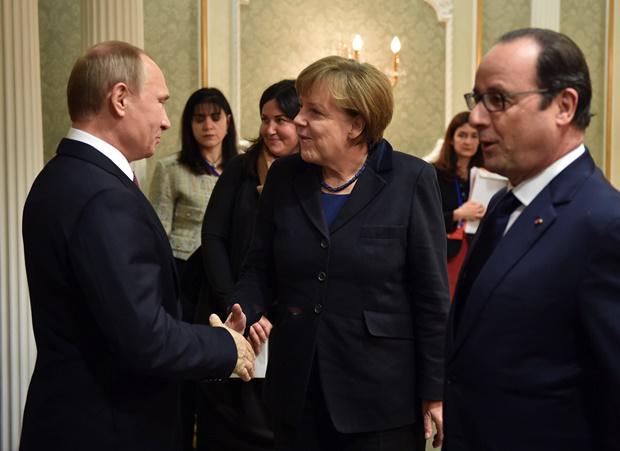



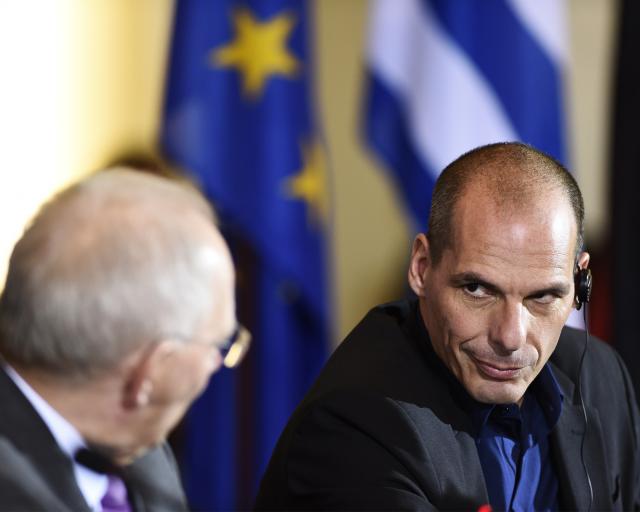 The future of Europe now depends on something apparently impossible: Greece and Germany must strike a deal. What makes such a deal seem impossible is not the principled opposition of the two governments – Greece has demanded a debt reduction, while Germany has insisted that not a euro of debt can be written off – but something more fundamental: while Greece is obviously the weaker party in this conflict, it has far more at stake.
Game theory suggests that some of the most unpredictable conflicts are between a weak, but determined, combatant and a strong opponent with much less commitment. In these scenarios, the most stable outcome tends to be a draw in which both sides are partly satisfied.
In the Greek-German confrontation, it is easy, at least in theory, to design such a positive-sum game. All we must do is ignore political rhetoric and focus on the economic outcomes that the protagonists really want.
Germany is determined to resist any debt write-offs. For German voters, this objective matters much more than the details of Greek structural reforms. Greece, for its part, is determined to gain relief from the punitive and counter-productive austerity imposed on it, at Germany’s insistence, by the “troika” (the European commission, the European Central Bank, and the International Monetary Fund). For Greek voters, this objective matters much more than detailed calculations about the net present value of national debt in 30 years.
A deal should be easily negotiable if both sides concentrate on their top priorities, while compromising on their secondary aims. Unfortunately, human fallibility seems to be working against such a rational solution.
Yanis Varoufakis, Greece’s new finance minister, is a professor of mathematical economics who specialises in game theory. But his negotiating technique – unpredictable oscillations between aggressiveness and weakness – is the opposite of what game theory would dictate. Varoufakis’s idea of strategy is to hold a gun to his own head, then demand a ransom for not pulling the trigger.
German and European Union policymakers are calling his bluff. As a result, the two sides have become stuck in a passive-aggressive standoff that has made serious negotiation impossible.
There was nothing inevitable about this outcome. Just last month, the European Central Bank’s president, Mario Draghi, provided a textbook example of how these negotiations could, and should, have progressed, when he outmanoeuvred German opposition to the monetary stimulus that Europe clearly needed.
Draghi spent months before the ECB’s 22 January announcement that it would launch quantitative easing (QE) in intense public debate with the Germans over which point of principle they chose as a “red line” – the point beyond which no deal would be possible. Germany’s red line was debt mutualisation: there must be no sharing of losses if any eurozone country should default.
Draghi let Germany win on this issue, which he viewed as economically irrelevant. But, crucially, he was careful not to back down until the last possible moment. By focusing the QE debate on risk-sharing, Draghi managed to distract Germany from an infinitely more important issue: the enormous size of the QE programme, which completely defied the German taboo against monetary financing of government debts. By conceding at the right time on an issue of no importance, Draghi achieved an enormous breakthrough that really mattered to the ECB.
Had Varoufakis adopted an equivalent strategy for Greece, he would have stuck doggedly to his demand for debt cancellation until the last moment, then backed down on this “principle” in exchange for major concessions on austerity and structural reforms. Or he could have adopted a less aggressive strategy: Concede from the start the German principle that debts are sacrosanct and then show that austerity could be eased without any reduction in the face value of Greek debt. But, instead of consistently pursuing either strategy, Varoufakis veered between defiance and conciliation, losing credibility both ways.
Greece started the negotiation by insisting on debt reduction as its red line. But, instead of sticking to this position and turning a debate over debt forgiveness into a Draghi-style diversionary tactic, Greece abandoned this demand within days. Then came the pointless provocation of refusing talks with the troika, despite the fact that the three institutions are all much more sympathetic to Greek demands than the German government.
Finally, Varoufakis rejected any extension of the troika programme. This created an unnecessary new deadline of 28 February for the withdrawal of ECB funding and consequent collapse of the Greek banking system.
Greece’s idealistic new leaders seem to believe that they can overpower bureaucratic opposition without the usual compromises and obfuscations, simply by brandishing their democratic mandate. But the primacy of bureaucracy over democracy is a core principle that EU institutions will never compromise.
The future of Europe now depends on something apparently impossible: Greece and Germany must strike a deal. What makes such a deal seem impossible is not the principled opposition of the two governments – Greece has demanded a debt reduction, while Germany has insisted that not a euro of debt can be written off – but something more fundamental: while Greece is obviously the weaker party in this conflict, it has far more at stake.
Game theory suggests that some of the most unpredictable conflicts are between a weak, but determined, combatant and a strong opponent with much less commitment. In these scenarios, the most stable outcome tends to be a draw in which both sides are partly satisfied.
In the Greek-German confrontation, it is easy, at least in theory, to design such a positive-sum game. All we must do is ignore political rhetoric and focus on the economic outcomes that the protagonists really want.
Germany is determined to resist any debt write-offs. For German voters, this objective matters much more than the details of Greek structural reforms. Greece, for its part, is determined to gain relief from the punitive and counter-productive austerity imposed on it, at Germany’s insistence, by the “troika” (the European commission, the European Central Bank, and the International Monetary Fund). For Greek voters, this objective matters much more than detailed calculations about the net present value of national debt in 30 years.
A deal should be easily negotiable if both sides concentrate on their top priorities, while compromising on their secondary aims. Unfortunately, human fallibility seems to be working against such a rational solution.
Yanis Varoufakis, Greece’s new finance minister, is a professor of mathematical economics who specialises in game theory. But his negotiating technique – unpredictable oscillations between aggressiveness and weakness – is the opposite of what game theory would dictate. Varoufakis’s idea of strategy is to hold a gun to his own head, then demand a ransom for not pulling the trigger.
German and European Union policymakers are calling his bluff. As a result, the two sides have become stuck in a passive-aggressive standoff that has made serious negotiation impossible.
There was nothing inevitable about this outcome. Just last month, the European Central Bank’s president, Mario Draghi, provided a textbook example of how these negotiations could, and should, have progressed, when he outmanoeuvred German opposition to the monetary stimulus that Europe clearly needed.
Draghi spent months before the ECB’s 22 January announcement that it would launch quantitative easing (QE) in intense public debate with the Germans over which point of principle they chose as a “red line” – the point beyond which no deal would be possible. Germany’s red line was debt mutualisation: there must be no sharing of losses if any eurozone country should default.
Draghi let Germany win on this issue, which he viewed as economically irrelevant. But, crucially, he was careful not to back down until the last possible moment. By focusing the QE debate on risk-sharing, Draghi managed to distract Germany from an infinitely more important issue: the enormous size of the QE programme, which completely defied the German taboo against monetary financing of government debts. By conceding at the right time on an issue of no importance, Draghi achieved an enormous breakthrough that really mattered to the ECB.
Had Varoufakis adopted an equivalent strategy for Greece, he would have stuck doggedly to his demand for debt cancellation until the last moment, then backed down on this “principle” in exchange for major concessions on austerity and structural reforms. Or he could have adopted a less aggressive strategy: Concede from the start the German principle that debts are sacrosanct and then show that austerity could be eased without any reduction in the face value of Greek debt. But, instead of consistently pursuing either strategy, Varoufakis veered between defiance and conciliation, losing credibility both ways.
Greece started the negotiation by insisting on debt reduction as its red line. But, instead of sticking to this position and turning a debate over debt forgiveness into a Draghi-style diversionary tactic, Greece abandoned this demand within days. Then came the pointless provocation of refusing talks with the troika, despite the fact that the three institutions are all much more sympathetic to Greek demands than the German government.
Finally, Varoufakis rejected any extension of the troika programme. This created an unnecessary new deadline of 28 February for the withdrawal of ECB funding and consequent collapse of the Greek banking system.
Greece’s idealistic new leaders seem to believe that they can overpower bureaucratic opposition without the usual compromises and obfuscations, simply by brandishing their democratic mandate. But the primacy of bureaucracy over democracy is a core principle that EU institutions will never compromise.